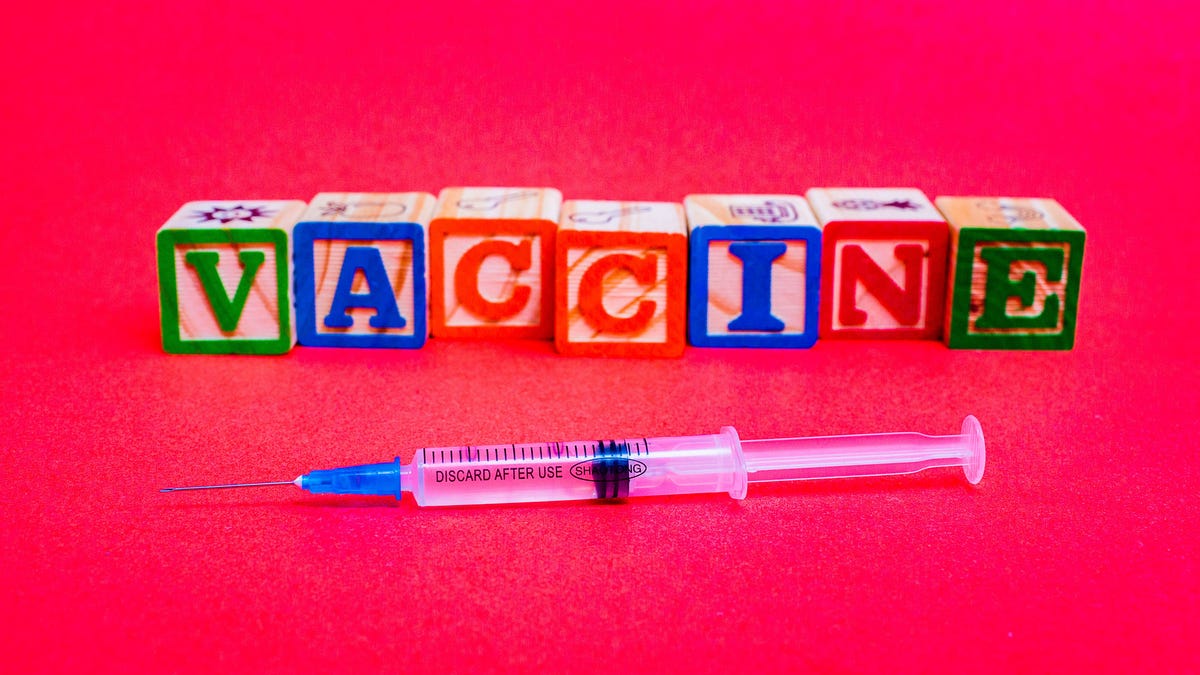CDC chief backs Pfizer's COVID vaccine for kids 5 to 11
The recommendation means shots could start going out to kids under 12 this week.

The director of the US Centers for Disease Control and Prevention on Tuesday gave final authorization for Pfizer's COVID-19 vaccine to be administered to children ages 5 to 11. Dr. Rochelle Walensky's approval means shots could start going out to kids under 12 this week.
"Together, with science leading the charge, we have taken another important step forward in our nation's fight against the virus that causes COVID-19," Walensky said in a statement. "We know millions of parents are eager to get their children vaccinated and with this decision, we now have recommended that about 28 million children receive a COVID-19 vaccine."
Walensky's decision came just hours after an advisory committee to the CDC voted unanimously to recommend Pfizer's COVID-19 vaccine for a pediatric vaccination program.
Pfizer's vaccine for children 5 to 11 is a smaller dose than the one given to people 12 and older. It's authorized by the FDA as a two-dose series, three weeks apart. The formula of the vaccine for kids is also a little different, making it easier to store and use in places such as pediatricians' offices or clinics.
The panel of experts discussed the safety and effectiveness data that led to the US Food and Drug Administration's authorization of Pfizer's vaccine for younger kids, which happened last week. Taking into account all available data, they found that the benefits of getting children ages 5 to 11 vaccinated against the coronavirus outweighed any risks.
Committee members discussed the risk of heart inflammation when vaccinating kids under 12, but found that the benefits of protecting kids against COVID-19 -- which can cause complications including multisystem inflammatory syndrome or long COVID -- outweigh any risks. (The risk of myocarditis is highest in men under 30 and male adolescents. Myocarditis is also typically mild and resolves quickly.)
According to the FDA's announcement on its authorization of Pfizer's coronavirus vaccine for kids ages 5 to 11, no serious side effects have been detected in the ongoing study of about 3,100 children. The vaccine was also found to be 90.7% effective in preventing COVID-19 in the younger age group.
CDC adviser Dr. Oliver Brooks said that the "bottom line" of the data on COVID-19 vaccination in kids ages 5 to 11 is that it's "safe and effective."
"Children are dying, and we can reduce hospitalization, cases and deaths with a safe and effective vaccine that will benefit the community," he said.
More than 8,300 children ages 5 to 11 have been hospitalized with COVID-19 since the beginning of the pandemic, according to CDC data. Although children are at lower risk of severe COVID-19 illness and death compared with adults, about one-third of children ages 5 to 11 who are hospitalized with COVID-19 will end up in the ICU, according to data shared during an FDA advisory committee presentation last week.
There are also racial disparities in how sick children get from COVID-19. Children who are Black, Native American or Hispanic are three times more likely to be hospitalized with COVID-19 than white children, according to the same presentation.
According to the CDC's presentation Tuesday, at least 94 kids ages 5 to 11 have died from COVID-19 in the US. The FDA finds a higher number at 146 deaths in the same age group. Children have also faced mental, emotional and educational impacts of the coronavirus pandemic, according to a CDC presentation, which has been caused, in part, by missing school.

